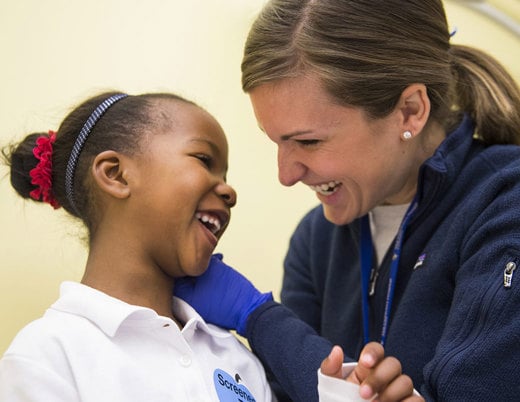Key takeaways
-
Most study participants identified as a survivor, which was linked with significantly higher anxiety and worse overall mental health.
-
Study results highlight differences in identity and health outcomes in adult-onset cancer and pediatric cancers.
-
Prepare to encounter a range of experiences on the effect of pediatric cancer and adult identity.
-
Don’t assume survivor identity is linked to better health outcomes.
Most individuals treated for adult-onset cancers identify as a cancer survivor after treatment, while some identify as a victim. The common survivor identity has been linked with positive outcomes for mental and physical health.
Young adults treated for childhood cancers commonly identify as a survivor, but less is known about their identity development, even though childhood is a critical period for forming identity.
Previous studies found the strength and meaning of the survivor identity varies among these individuals. Given the limited literature, most with small sample sizes, there is a need for additional research, specifically to:
- Understand the effect of cancer on identity
- Provide appropriate psychosocial aftercare
Research by Robert Casey, MD, from the Center for Cancer and Blood Disorders at Children’s Hospital Colorado, as well as by researchers from the Department of Pediatric Oncology at the Dana-Farber Cancer Institute and the Department of Pediatrics at the University of North Carolina School of Medicine, explored the effect of cancer on identity in young adults previously treated for pediatric cancer. They hypothesized most study participants would identify as survivors, which would be linked to positive health outcomes and behaviors.
Methods: measures on the effect of cancer on identity

Measures
Participants completed self-reported measures on the effect of cancer on identity, including:
- Frequency of thoughts of cancer
- Effect of cancer on identity
- Survivor and victim identity
- Two questions evaluated identification with survivor and victim
- Five-point scale ranged from ‘not at all’ to ‘very much’
- Moderate endorsement of victim item classified as victim identifiers
- Moderate endorsement of survivor item classified as survivor identifiers
- Specific effects of survivor and victim identity examined in analyses:
- Survivors compared to nonsurvivors
- Victims compared to nonvictims
- Health outcomes:
- Short-form 12 evaluated quality of life
- Rated current physical and emotional functioning
- Higher scores indicate better functioning
- Short-form 12 evaluated quality of life
- Health behaviors:
- Brief symptom inventory 18 measured psychological symptoms
- Anxiety and depression subscales
- Higher scores reflected greater symptom burden
- Binary values identified unhealthy behaviors were created from participant responses to four items:
- Binge drinking: more than five drinks on one occasion, more than once per month
- Physical inactivity: participating in exercise less than or equal to two times a week
- Ever smoking: smoking more than 100 cigarettes in lifetime
- Inconsistent sun protection: Sometimes, seldom or never using sunscreen/sunblock when outside more than an hour on a sunny day
- Brief symptom inventory 18 measured psychological symptoms
Results: Most participants identified as a survivor, linked to higher anxiety and worse overall mental health

Most common cancer diagnoses:
- 33.5% leukemia
- 21.8% Hodgkin lymphoma
- 11.2% Non-Hodgkin lymphoma
How frequently participants thought about their cancer diagnosis:
- 25.9% one to two times a year
- 32.9% one to two times a month
- 28.2% one to two times a week
- 12.9% greater or equal to one or two times a day
More frequent thoughts of cancer were significantly associated with:
- Older age at diagnosis (median)
- ≥ once a day: 10.98 years old
- 1 to 2 times a year: 7.83 years old
- Lower overall physical health scores (median)
- ≥ once a day: 48.96
- 1 to 2 times a year: 54.77
- More anxiety (median scores)
- ≥ once a day: 50.95
- 1 to 2 times a year: 44.55
Other significant associations related to frequency of thoughts of cancer (non-ordinal relationships):
- Years from diagnosis
- Those with very infrequent thoughts of cancer or very frequent thoughts were significantly further from their cancer diagnosis than those who reported thoughts one or two times a week.
- Depression
- Those with very infrequent thoughts of or very frequent thoughts of cancer reported significantly higher depression than those who reported thoughts one or two times a month.
Effect of cancer on current identity
- 37.6% large effect
- 28.2% moderate effect
- 33.5% little or no effect

- Younger age at diagnosis, weaker effect of cancer on identity (median age)
- Little to no effect: 8.8 years
- Significantly younger at diagnosis
- Large effect: 12.3 years
- Little to no effect: 8.8 years
- Less depression, weaker effect of cancer on identity (median score)
- Little/to no effect of cancer: 43.5
- Reported significantly lower depression
- Moderate effect: 47.1
- Little/to no effect of cancer: 43.5
Survivor and victim identities
- 89.5% identified as a survivor
- 8.2% identified as a victim
Participants endorsing survivor identity reported:
- Significantly higher anxiety scores (median)
- 46.0 compared to 41.4 nonsurvivors
- Significantly worse overall mental health (median)
- 50.2 compared to 54.4 who did not endorse the survivor identity
Participants who identified as a victim reported:
- Significantly worse overall mental health (median scores)
- 49.5 compared to 51.4 who did not identify as a victim
- Significantly more likely to report binge drinking
- 57.1% compared to 29.7% who did not identify as a victim
Discussion and conclusion: effect of pediatric cancer on adult identity, adjustment different than adult-onset cancer
The study offers important findings about identity in young adults treated for childhood cancers. Results show significant variation in how participants consider the relevancy of their cancer diagnosis on their current identity, which is consistent with previous qualitative studies.
Future studies should address:
- How health problems may remind participants of their cancer, and/or if frequent thoughts about cancer can contribute to adjustment problems like anxiety
- How older age of diagnosis influences variability in prominence of cancer to identity
- The unanticipated finding of gender differences in identity development, if it is tied to gender differences in the cancer experience or more general identity development
Researchers did not anticipate finding that identifying as a survivor was associated only with greater anxiety and worse overall mental health, yet the means for the identifiers were in the normal range. This points to a key difference between survivor identity and post-treatment health and adjustment when compared to adult-onset cancers.
The study authors’ findings suggest that what is known about the relationship between identity and health outcomes after adult-onset cancer cannot be generalized to pediatric cancers. They offered the following recommendations for clinicians who encounter these young adults:
- Be prepared for a range of experiences on the effect of cancer and adult identity.
- Provide reassurance that there is no one right way to think about effect of cancer and later development.
- Do not assume survivor identity is associated with better health outcomes.
As one of the first quantitative examinations of the effect of pediatric cancer on adult identity, the study has important implications for understanding and caring for this population.
Featured Researchers

Robert Casey, PhD
Psychologist
Center for Cancer and Blood Disorders
Children's Hospital Colorado
Associate professor
Pediatrics-Heme/Onc and Bone Marrow Transplantation
University of Colorado School of Medicine





 720-777-0123
720-777-0123










